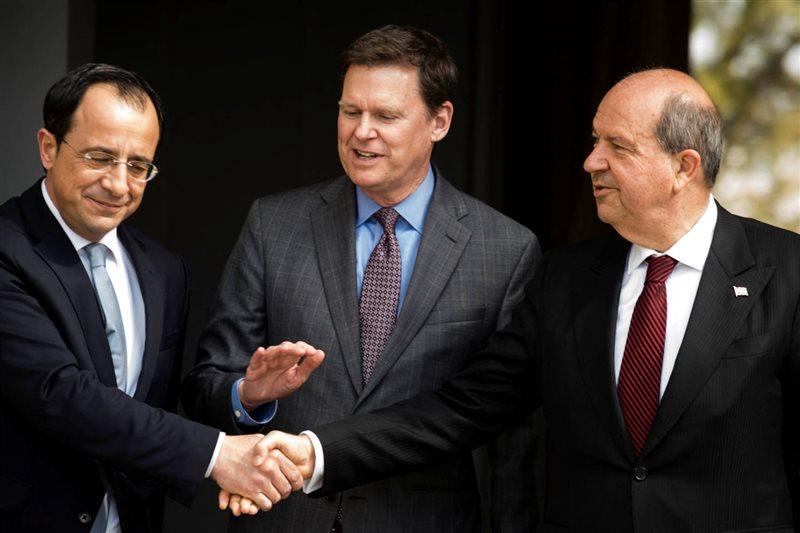From the perspective of the Cypriot leaders, although the European Union has always contributed positively to the negotiations, it has not had the degree of influence it could have. The presence of EU officials has always hindered the necessary improvement in this regard. If they had the will to play a role at this level to solve the Cyprus problem, a high impact would have been achieved in the process of solving the problem. Although the European Union has always been involved in the negotiations, the Greek Cypriot government seeks to institutionalize and strengthen this role. At the executive and political level, the position of the European Union should be much more robust. This not only does not mean to weaken the role of the United Nations, but it can act in parallel. So far, the European Union has agreed with the proposal and is seeking further information. Europe can act as a catalyst in this regard and play a role in resuming negotiations and turning them into significant results.
Greek Cypriot President Nikos Christodoulides recently met with the United Nations Under-Secretary-General, Rosemary DiCarlo, to find a solution to break the deadlock in the stalled Cypriot negotiations. From the point of view of the United Nations, the solution proposed by this organization based on one government and two federations is no longer negotiable. It has not even appointed a special envoy for Cyprus because the Turkish Cypriot side refuses to cooperate.
The Greek Cypriot expects that before the Turkish presidential election (May 14, 2023), the United Nations will introduce its special envoy to solve the problem of Cyprus so that the negotiations will begin when the result of the upcoming Turkish elections is determined and during this time Cyprus, in order not to lose time, prepare the ground for the beginning of the talks by presenting proposals and taking some other measures.
Greek Foreign Minister Nikos Dendias considers the election of Christodoulides as the new president of Cyprus as a unique opportunity to use practical initiatives to solve the Cyprus challenge. In his last conversation with the Secretary General of the United Nations, he called for more efforts by the organization to solve the Cyprus problem within the framework of the decisions of the United Nations Security Council.
Opponents of the Cypriot government, including the “AKL” party, expect the new president to explain his proposal for a more active participation of the European Union in the Cyprus problem. According to them, the creation of a joint coordinating body that allows the Cypriot and Greek cabinets to meet and consult with each other and provide explanations, this measure will send a clear message at the international level. And in their opinion, while Cyprus is fighting to create a government with two communities within the framework of the federal system, the measures and decisions taken should also be in the same direction to support Cyprus.
In the Cyprus crisis, the positions of the United States and Britain have always been important and influential. The Speaker of the House of Representatives of Cyprus has appreciated the high level of bilateral relations with the United States and the improvement of the level of cooperation between Cyprus and the United States in critical areas of mutual interest and firmly supported the positions of that country in finding a solution to solve the Cyprus problem within the framework of the United Nations resolutions. The leaders of Cyprus consider their country’s situation to be the result of Turkey’s violation of international laws and human rights, which resulted from Turkey’s invasion and continued occupation of the island. From the beginning, Cyprus has not accepted Turkey’s claim on the “two-state” solution, which legitimizes Turkey’s invasion and occupation. The Greek Cypriot is committed to resuming negotiations from where they left off at the Crans-Montana in the summer of 2017 to find a solution within the framework of UN resolutions based on a bi-regional federation and is loyal to any solution that would reunify the country and the rule of peace, security, economic stability and welfare of the Cypriot people.
In the past, when the negotiations to solve the Cyprus issue did not progress, Britain took measures and plans to help continue the talks. Now, considering the motivation of the new government of Cyprus and its president, it does not feel the need to present new plans and ideas. London supports the new president’s efforts to resume negotiations. Britain had meetings with the Turkish Cypriot leadership, encouraging them to respond positively to the initiatives. Britain also interacts with the Turkish government, enabling them to react positively to pursue negotiations. But considering that Turkey is on the threshold of presidential elections, it is possible to follow the issue after establishing the new government. If the new Turkish politicians are not convinced to return to the negotiating table, London will start a new round of its efforts.
Evidence shows that in any possible negotiation between the parties, the two sides must agree on a satisfactory solution, which will fundamentally change all the systemic and executive arrangements in the Greek and Turkish sectors. Undoubtedly, the fundamental difference that has hindered real progress in the nationalized peace and reconciliation talks revolves around the island’s security issues, which has brought Greece and Turkey to the scene of the dispute. The chronic differences between Athens and Ankara in the Aegean Sea, the Cyprus crisis, and the constant tensions in the Eastern Mediterranean will determine the limits of hostility and friendship between the two sides.










0 Comments